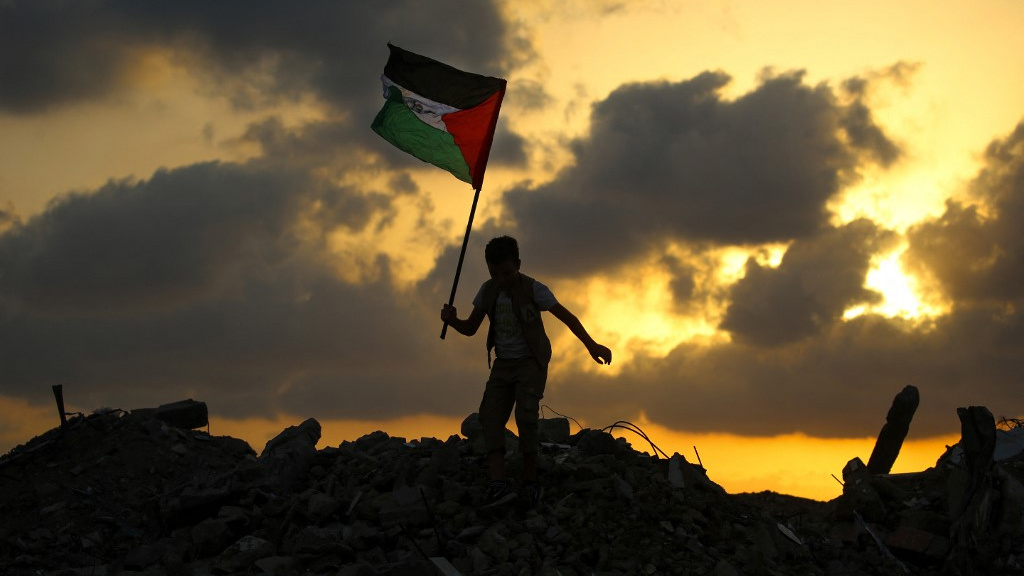“Do you know why we Palestinians are famous? Because you are our enemies. The interest in us stems from interest in the Jewish issue. The interest is in you, not in me,” Palestinian author Mahmoud Darwish once said in an interview.
“We have the misfortune of having Israel as our enemy because it enjoys unlimited support. And we have the good fortune of having Israel as our enemy because the Jews are the centre of attention. You’ve brought us defeat and renown.”
Darwish’s words offer Palestinians a mirror – not just to see ourselves, but to understand the brutal, absurd reality we inhabit.
They remind us that our fate is not exceptional, nor are we spared the violent indifference that swallows other Arab peoples living under oppressive regimes. And they remind us that no amount of “special” media coverage can change the catastrophe imposed upon us, nor shield us from the violence that defines our existence.
These words feel particularly vital now. They help us make sense of the dizzying sequence of recent events: from the long-awaited UN recognition of a Palestinian state – a symbolic step rendered meaningless – to the hastily convened summit between Arab and Islamic leaders and US President Donald Trump, where they formalised a Gaza ceasefire deal.
New MEE newsletter: Jerusalem Dispatch
Sign up to get the latest insights and analysis on
Israel-Palestine, alongside Turkey Unpacked and other MEE newsletters
All of this followed Israel’s recent ground invasion of Gaza City, marked by the daily killing of dozens of Palestinians.
As the ceasefire took effect, Trump gave a triumphant speech before the Israeli Knesset, in which he claimed to have ended “3,000 years of pain and conflict”, and promised a new era of peace and prosperity.
Emotional storm
The daily torrent of news has been an emotional storm for Palestinians, just as it has been throughout the last two years of genocide: fleeting optimism followed by despair, cautious hope drowned by renewed dread – depending on the headline and its source.
Those who take Israeli Prime Minister Benjamin Netanyahu’s words at face value might believe Israel achieved all its war goals: the hostages are returning, Gaza will be demilitarised, neither Hamas nor the Palestinian Authority (PA) will participate in “the day after”, and – most importantly – there will be no discussion of a Palestinian state.
Follow Middle East Eye’s live coverage of the Israel-Palestine war
Anyone willing to look at reality objectively, however, will see that Israel did not succeed in defeating Hamas; that the hostages returned only through a deal forced upon Netanyahu; and that the world has now seen the true face of Israeli society – and the country’s international isolation will not end with the ceasefire.
Yet the chaos itself is not accidental. It is the point. It captures the essence of the Trump era: a real-estate tycoon enlists his son-in-law and a friend to broker a ceasefire in one of the most complex conflicts in the world, while treating the Palestinian question as a real-estate project.
We must reckon with the cruelty of the regional order – and with how easily Arab and Muslim lives are crushed
Like any property deal, the process unfolds in phases, with the core issue deferred to the end. The public declarations we hear from all sides are not conclusions; they are bargaining positions in an ongoing negotiation.
And as with any negotiation, the more time passes, the more we learn about who is truly at the table – and who is not. The recent summit in Sharm el-Sheikh was revealing: Trump visited Israel, then Egypt – but neither Israel nor Hamas were invited, although PA leader Mahmoud Abbas attended the summit.
The real negotiations now run directly between Arab and Islamic states and the US – a reality that exposes who actually wields power. It is tempting to view these states as powerless in the face of Washington, yet in this moment, they have shown that they possess leverage. The real question is whether they wish to use it.
Hard truth
In other Arab and Muslim crises – Sudan, Libya, Yemen, Syria and Lebanon – these same states have acted in accordance with their own interests. Gaza is no exception. Why, then, are Palestinians surprised? Why should we expect states that helped devastate half of the Arab world to behave differently towards us?
It is no coincidence that fresh “leaks” from the White House describe deep security coordination between Arab states and Israel during this genocide – including intelligence-sharing on underground warfare, one of Israel’s main challenges in Gaza, as well as intelligence on Syria and Yemen.

‘Peace deal’ or not, Gaza remains the holocaust of our time
Read More »
This exposes a hard truth: Israel’s operational successes, from Lebanon to Iran, are not the product of Zionist brilliance, as its propaganda machine tirelessly claims. They are the product of a regional military coalition – Israeli and Arab – shaping the future of the Middle East.
Those same Arab and Islamic states, still competing among themselves for power and influence, see Israel as a useful partner in strengthening or weakening other regional actors.
Two years into the genocide in Gaza, under a sky heavy with chaos and an unclear future, Palestinians must confront Darwish’s words in full. Like other Arab peoples, we must reckon with the cruelty of the regional order – and with how easily Arab and Muslim lives are crushed beneath the weight of economic interests, especially those tied to Israel.
And from there, we must ask: after everything we have witnessed over the past two years, are our internal divisions even more dangerous than the genocide itself? What future awaits us if Palestinian elites continue their petty rivalries, dragging the rest of our people towards another catastrophe?
The views expressed in this article belong to the author and do not necessarily reflect the editorial policy of Middle East Eye.

